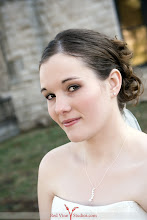As I was listening to John Field’s Sonatas and Nocturnes, I noted the beautiful melodies and the relaxing quality the pieces offered. However, not only were they easy to listen to, they were also easy to forget. The rather uninteresting harmonic movement and lack of development in these works left me feeling disappointed. In Josh Hey’s journal, he says “the nocturne was one of the most evocative forms available to the composer of Romantic piano music.” I would not argue this, however I would point out that Field’s nocturnes are not exactly “evocative.”
John Field is considered a Romantic composer, although his dates suggest otherwise. Field was born in 1782, almost forty years before the Romantic period is considered to have begun. While we know that musical periods cannot be contained in a certain time frame, I would argue that Field was more a Classical composer than Romantic. As a child, Field studied with Muzio Clementi who was known as “father of the pianoforte sonata” (Plantinga). Field dedicated his first and only opus for piano sonata to his teacher, Clementi. Desiring to advance his career in more profitable genres, Field stopped writing Sonatas only to compose one more several years later. However, I do not think he was ever able to get away from the “classical manner” he learned from Clementi (Branson).
As Hey pointed out, every one of Field’s sonatas have only two movements, most of which are relatively upbeat. Some of the high points in these Sonatas are in his rondo sections, where he incorporates playful ornamentations (often grace notes are used) on top of dance like accompaniment. Of the four Sonatas I gravitate toward op. 1, no. 3, in part due to Field’s use of C minor. The drastic shift in mood and greater development helped to catch my attention. Of all of the selections I listened to, this was the only piece in a minor key. In my opinion, the lack of contrast in these pieces is a large reason for their exclusion from the canon. It seems that Field had a fear of both slow tempos and minor keys, which could be attributed to the gradual development of the pianoforte and his understanding of the instrument’s capabilities at the time (Piggott).
Most famous for his nocturnes, I can see that he helped initiate a more revolutionary approach to the genre. The great Romantic Liszt said, “Field did not so much play his own nocturnes but dreamed them at the piano” (Dubal). I agree that his pieces and melodies are lovely, as he imitated the “bel canto” popular in Italian singing. However, as Patrick Piggott points out “The preference for decoration rather than development, the lack of contrast and modulation, and the extremely simple formal scheme of the piece [Nocturne no. 1 in E flat major] are all typical of Field’s mature style.” Interestingly enough, Hey quotes Field as having despised Chopin’s nocturnes, for which Chopin is also most famous. In comparison, I hear the two composers as light years away. While credit is due to Field for looking at the term nocturne in a different light, I fully support Hey’s statement that Chopin was the genius who pushed the nocturne beyond its limits. On the one hand, Field’s nocturnes are pretty melodies that are fitting for evening music. However, when placed side-by-side with any one of Chopin’s nocturnes, it is obvious that Field’s music is lacking in those things that define Romantic music: chromaticism, passionate themes, and unique individuality.
In my readiness to criticize Field, I do not intend to undermine his work. While I do not feel he is as revolutionary as some may think, I do believe he made an impact on the world of music and began the groundwork for what was to become Chopin’s nocturnes.
Subscribe to:
Post Comments (Atom)

No comments:
Post a Comment